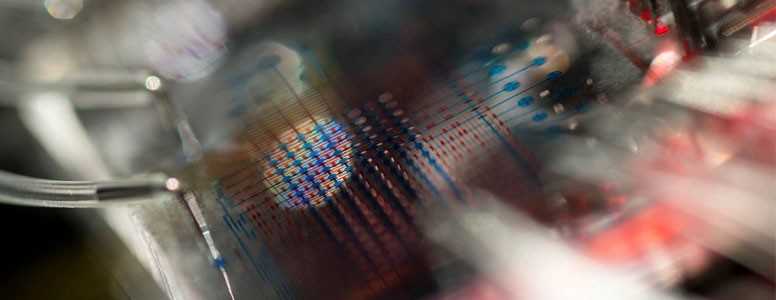Germany’s Federal Ministry of Education and Research (BMBF) has recently announced that it will allocate 1.5 million euros for a three-year project called PancChip.
PancChip refers to the development of a new diabetes research technique focusing on understanding how to get stem cells to turn into real insulin-secreting beta cells.
At present, scientists are able to grow replacement beta cells in almost infinite supplies, but lab-grown beta cells do not necessarily differentiate into insulin-producing ones.
They can specialise into two different types of cells: endocrine cells, which are cells that release insulin into the blood, or exocrine cells, known to release other substances like digestive enzymes into part of the small intestine.
Of course, the more stem cells develop into endocrine cells, the better in order to help restore beta function and insulin independence.
PancChip is a tool that researchers designed to identify factors that determine the fate of these cells, so they can in turn utilise this information to cultivate them under the best conditions possible.
That way, the researchers don’t just count on the body to do the work of transforming them into actual beta cells.
The cells would grow on the chip, which is the size of a thumb tip, where they would sit on culture fluids. Each individual chip would represent a different culture model.
The cell culture chip model is a lot more advanced than a standard lab dish, as it enables the implementation of a testing protocol called microfluidic large-scale integration technology (mLSI).
The mLSI combines the characterisation of cells by looking at proteins in and around them, the live cell imaging of the cells, as well as the tracking of their development over time.
This idea of using a chip as an investigational platform and, later on a 3D model system, originated with the collaboration of three partners institutions: The Helmholtz Zentrum Münche, the University of Freiburg and the Ulm University Medical Centre.
Munich researchers are going to use the technology to model stem cell-based diabetes therapies, while scientists from Ulm will apply it to the treatment of chronic inflammation of the pancreas (pancreatitis).
Using stem cells to treat diabetes is moving closer and closer to fact with innovative research techniques like PancChip. But trying to turn the technology’s promise into reality may take another ten years, as the first chip results won’t be usable before then.
Image credit: Matthias Meier, University of Freiburg
What's new on the forum? ⭐️
Get our free newsletters
Stay up to date with the latest news, research and breakthroughs.








